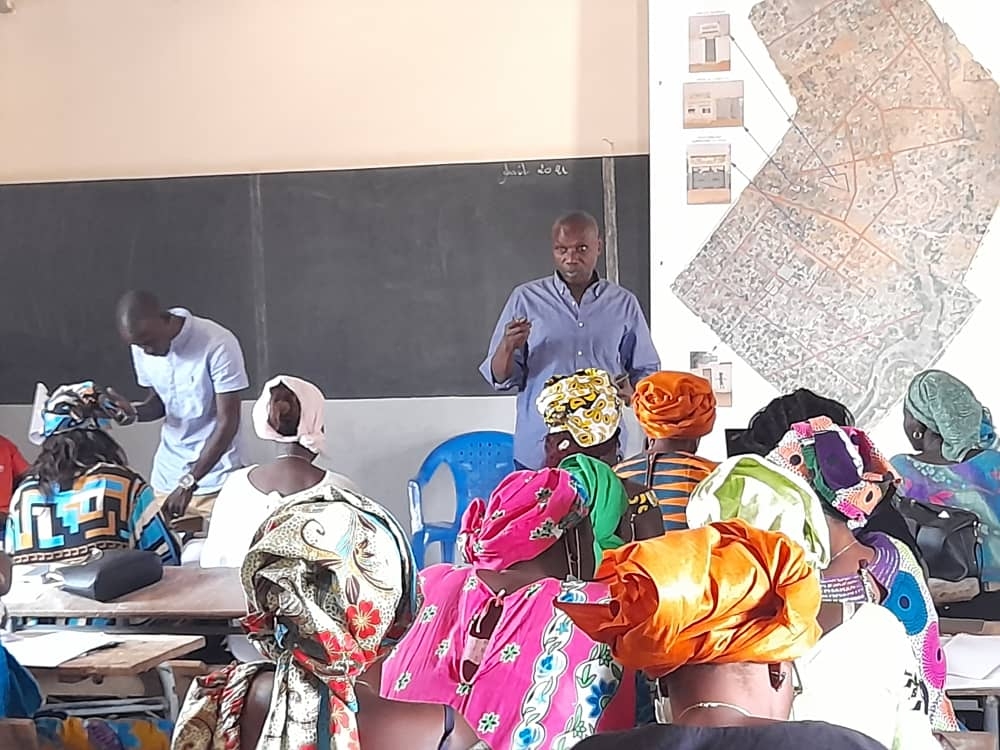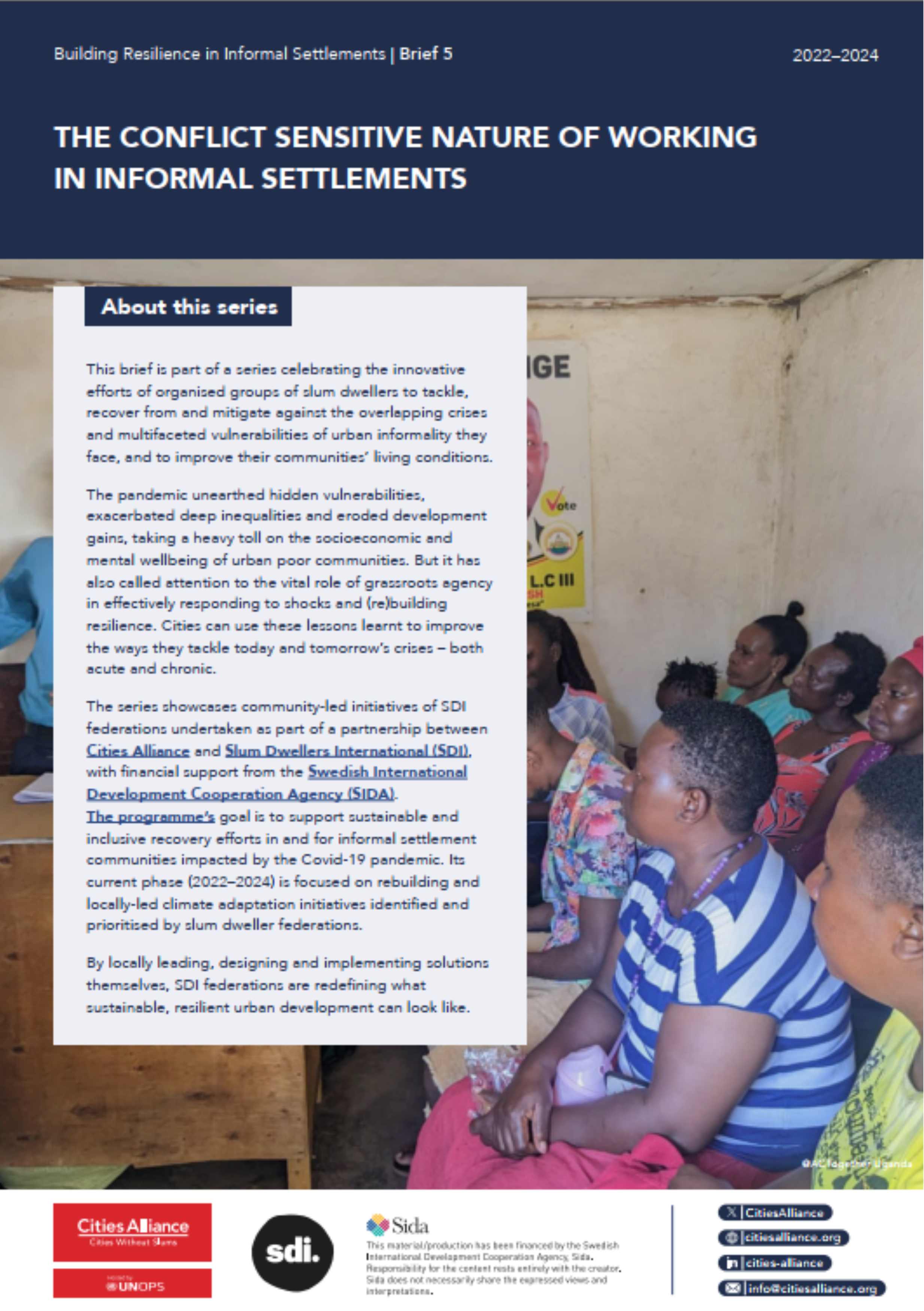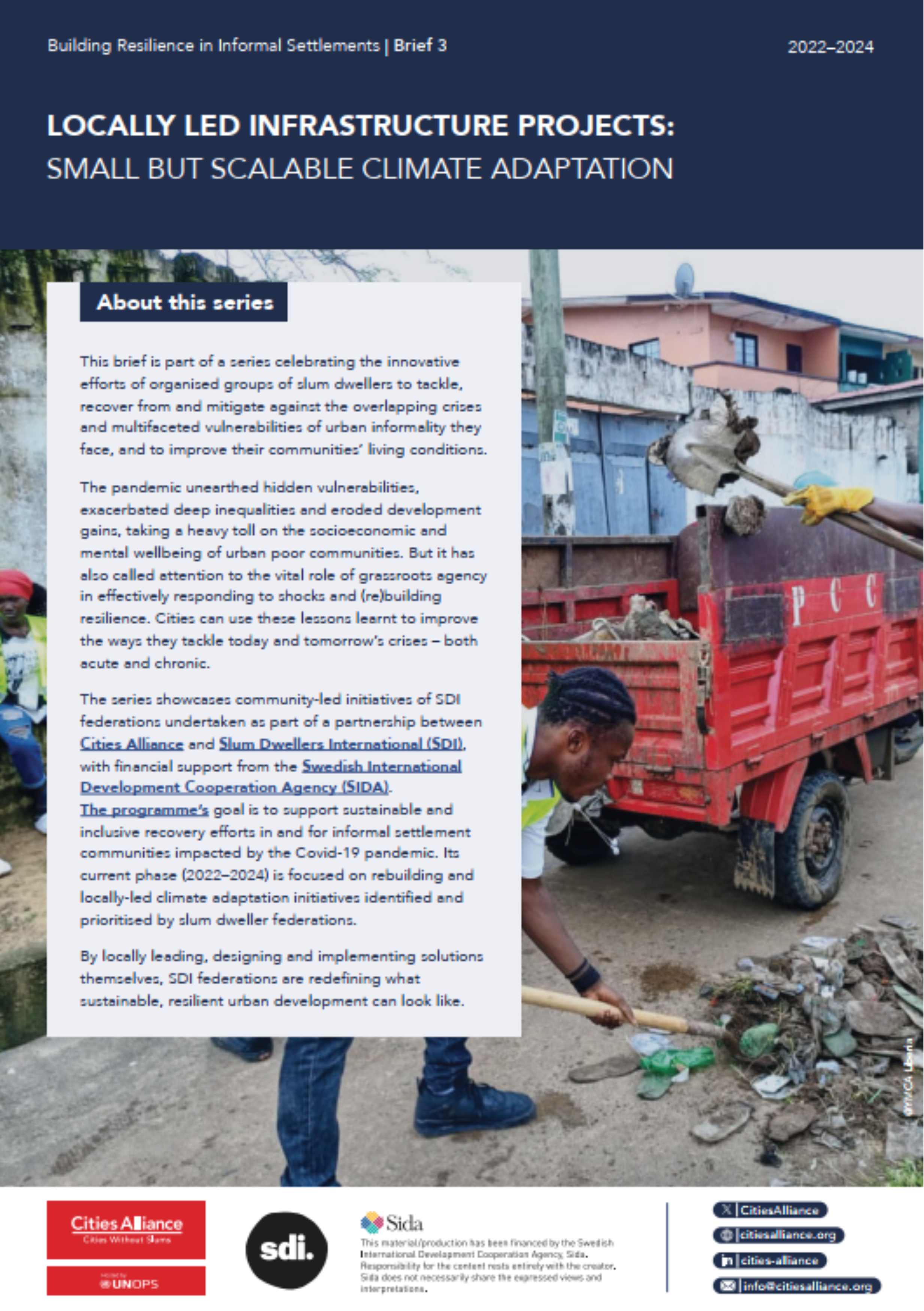- Who We Are
- How We Work
- Regional / Country Initiatives
- Legacy
- Core Themes
- Working Groups
- Portfolio & Results
- Newsroom
- Resources
From Recovery to Resilience: Community-led Responses to Covid-19
From Recovery to Resilience: this piece highlights how federations of the urban poor across the world have been supporting their communities and working with local governments and stakeholders to implement effective, scalable solutions to the challenges of the pandemic in informal settlements.

In 2020, as Covid-19 spread rapidly across the cities where SDI is active, federations recognised the need for both urgent responses to the acute humanitarian crises facing their communities and longer-term strategies to engage with government and other stakeholders to address the prolonged effects of this global crisis.
Through a partnership supported by the Swedish International Development Cooperation Agency (Sida), Cities Alliance, and Slum Dwellers International (SDI) were able to channel much-needed resources to organised communities of the urban poor in 17 countries across Africa, Asia, and Latin America to facilitate these processes.
Since early 2020, the Covid-19 pandemic and the responses to it, such as government lockdowns, have highlighted and exacerbated many of the chronic stresses urban poor communities live with and struggle against daily.
The strategies supported by this initiative are about more than Covid-19 response and recovery: they are about sustainable, inclusive, and pro-poor urban development.
They provide communities with meaningful opportunities to work with government and other stakeholders to address issues such as food security, access to livelihood opportunities, skills training, and basic services like water and sanitation, as well as the need for accurate slum data to drive government responses in times of crisis.

SDI’s urban poor federations have shown that they have the social networks and systems in place to respond efficiently and effectively to disasters and chronic stressors. They have demonstrated their critical role to governments and development partners as reliable actors at the forefront of the provision of information on and services to the most vulnerable. Indeed, with lockdowns and government restrictions, many external organisations were unable to access the vulnerable communities where SDI federations live and work, highlighting the immense value of working directly with these communities.
The examples included in this publication highlight how urban poor federations have the information, knowledge, and skills to work with government and other stakeholders to implement effective, scalable solutions to chronic and acute urban challenges.


